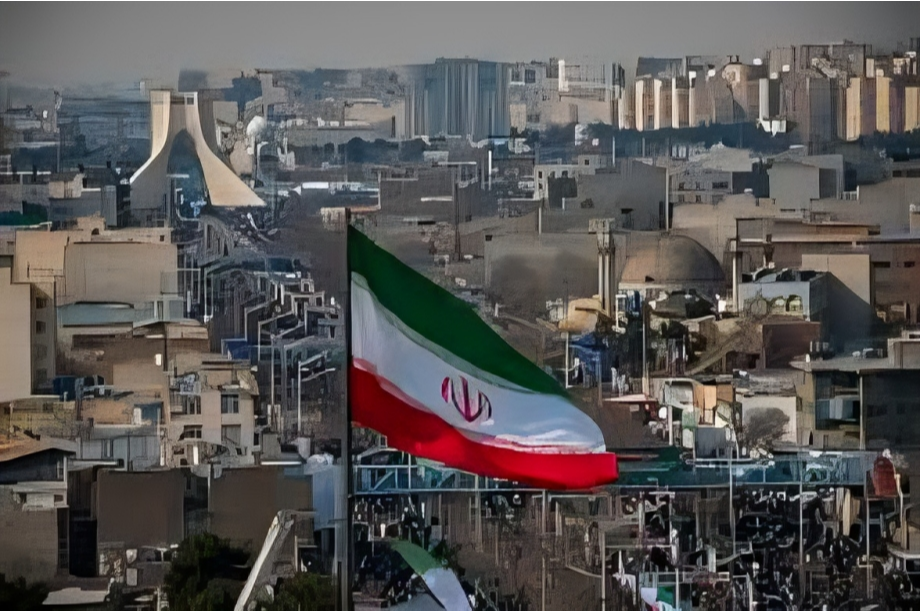Foreign News
Sudan Protests: UN Chief asks Military to ‘Show Restraint

UN Secretary-General, António Guterres, has urged the military to show restraint and not to create any more victims as mass civil protests against the military coup planned for Saturday in Sudan.
Guterres made the appeal while speaking to journalists in Rome on Friday, ahead of the weekend’s G20 Summit in the Italian capital.
He said people must be allowed to demonstrate peacefully, noting that this is essential.
Guterres reaffirmed his “strong condemnation of the coup,” which saw civilian leaders detained, stressing “the need to reestablish the transition system that was in place.”
Pro-democracy demonstrations have been held across the country’s capital, Khartoum, since the army dissolved the transitional government and detained civilian Prime Minister, Abdalla Hamdok, and his cabinet on Monday.
According to news agencies, at least 11 people have died. Latest reports suggest that Hamdok may be willing to negotiate the formation of a new government, if the military reverses its power grab, and releases detainees.
In light of Saturday’s planned protests, the Special Representative of the Secretary-General for the country, Volker Perthes, reminded everyone of the fundamental right to peaceful assembly and freedom of expression.
“I reiterate my call for the military and security forces to respect the rights of the protestors, to show restraint, and to refrain from excessive use of force,” he said in a statement.
The Special Representative urged those coming out to demonstrate “to do so peacefully, and to remain committed, as in the past, to the spirit of silmiye,” using the Arabic expression for peacefully.
Perthes, who also serves as the head of the UN Integrated Transition Assistance Mission in Sudan (UNITAMS), continued to call for a return to constructive and inclusive dialogue among all stakeholders, to get the transition back on track in line with the Constitutional Document.
“UNITAMS remains ready to offer its good offices in this regard,” he said.
Long-time ruler Omar al-Bashir was overthrown by the military following months of popular protest in April 2019.
A transitional government was set up comprising both military and civilian leadership, after a power-sharing agreement, that was due to lead to full democratic elections in 2023.
The country is also going through a humanitarian crisis.
This year, humanitarians have been seeking 1.9 billion dollars for Sudan, but their appeal is only 30 per cent funded.
Aid agencies reached 7.4 million people across the country with protection and humanitarian assistance, during the period from January to June. (NAN)
Foreign News
Iran Publicly Executes Man for Murdering Family of Four

Iran has carried out a public execution, hanging a man convicted of murder in the southern province of Fars, Iranian media reported on Tuesday.
The man was sentenced to death for allegedly killing a woman and her three children during a robbery with his wife, according to the Fars news agency.
His wife also received a death sentence, which was expected to be carried out inside a prison.
The execution took place near the crime scene, reports said.
Public executions are rare in Iran.
Human rights groups have long criticised the country’s use of capital punishment, accusing the judiciary of employing executions to silence dissent.
No fewer than 1,000 people were executed in Iran in 2024, according to United Nations figures.
Foreign News
CAF Sanctions Kenya Again over Crowd Trouble

The Confederation of African Football (CAF) has sanctioned African Nations Championship (CHAN) co-host, Kenya, for the second time in as many weeks over security breaches.
In a statement made available on Monday evening, the continental governing body said that it has limited entry to the 48,000-seat Moi International Sports Centre.
It also said that, known as Kasarani Stadium, can accommodate 27,000 fans for Sunday’s Group A match between Kenya and Zambia.
CAF said only electronic ticket holders would be allowed into the stadium, with thermal tickets prohibited.
The governing body warned that Kenya’s matches could be relocated from Kasarani Stadium if organisers fail to prevent further breaches.
“We trust these measures will be applied swiftly to protect competition’s integrity, ensure fan safety, and uphold confidence in Kenya’s commitment to the tournament,” CAF said.
The sanctions follow incidents on Aug. 10 when Kenya defeated two-time winner Morocco 1-0 in spite of playing the entire second half with 10 men.
The win put Kenya top of Group A with seven points.
The debutants would reach the quarterfinals with at least a draw against winless Zambia.
Last week, Kenya’s football federation was fined nearly 20,000 U.S. dollars for security lapses during the team’s 1-0 win over DR Congo in the tournament opener on Aug. 3.
In the latest case, CAF cited major lapses, including stadium gates and restricted service areas being overrun by ticketless spectators and holders of government-distributed physical tickets.
It also accused security personnel of losing control at exit points and allowing breaches of the perimeter fence that enabled thousands of ticketless fans to enter.
CAF had expressed alarm over the use of tear gas and flash grenades, reports of live ammunition fired near spectators and staff, and violent incidents such as stone-throwing at security personnel.
It also cited unsafe vehicle movement in spectator areas, inadequate police response, and the lack of medical incident reports in spite of injuries being reported.
Organisers were further criticised for insufficient communication tools and the absence of CCTV coverage at critical entry points.
Foreign News
Madonna Urges Pope Leo to Visit Gaza

Pop icon Madonna has made an appeal to Pope Leo XIV, urging him to visit the blockaded Gaza Strip amid a starvation crisis that has sparked international outrage.
“You are the only one of us that cannot be denied entry,” the U.S. singer wrote on social media platform X late on Monday.
“We need the humanitarian gates to be fully opened to save these innocent children.
“There is no more time,” she added.
Marking the 25th birthday of her son Rocco Ritchie on Monday, Madonna also announced plans to donate to humanitarian organisations working in Gaza.
“I feel the best gift I can give to him as a Mother is to ask everyone to do what they can to help save the innocent children caught in the crossfire in Gaza,” she wrote.
A United Nations (UN) agency said late last week that “acute malnutrition among children in Gaza has reached the highest levels.”
In July alone, nearly 12,000 children lower than five in age were identified as acutely malnourished, with another 2,500 found to suffer from severe acute malnutrition.
According to the UN Office for the Coordination of Humanitarian Affairs (OCHA), this is the most life-threatening form.
Israel controls access roads to Gaza and has sealed off the coastal area.
Very little aid got into Gaza from March through May, when Israel began allowing in deliveries using a controversial private system that bypasses traditional UN agencies.
Under pressure from allies, Israel recently began permitting larger convoys into the territory, as aid airdrops take place overhead.
On Sunday, Irish rock band U2 issued a stinging critique of the Israeli government’s actions.
“We know Hamas are using starvation as a weapon in the war, but now so too is Israel and I feel revulsion for the moral failure,” frontman Bono wrote.





























